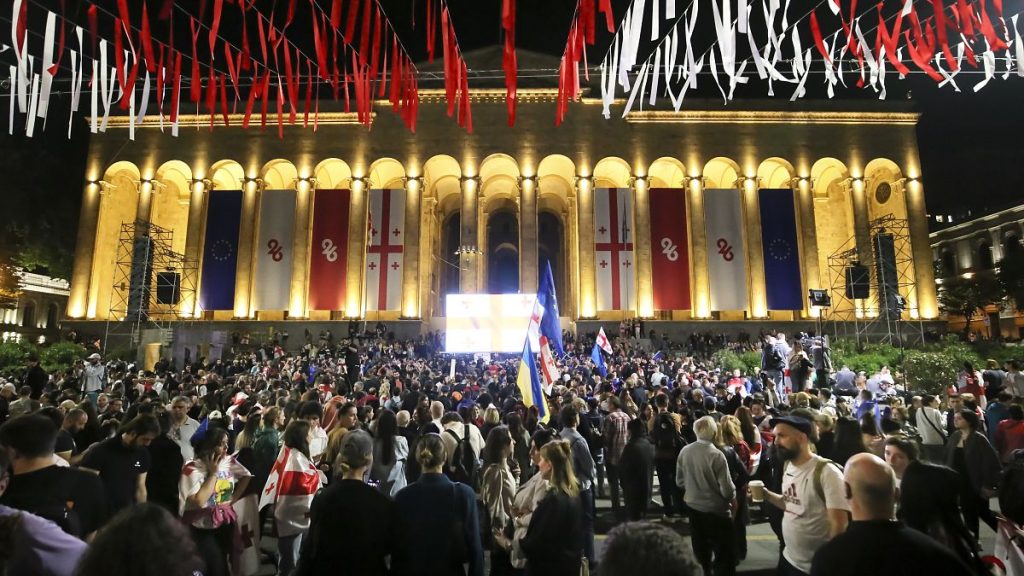Georgia’s controversial “foreign agents” bill, recently finalized by parliamentary speaker Shalva Papuashvili, has sparked significant opposition and protests from critics who argue it threatens media freedom and jeopardizes the country’s EU aspirations. The bill mandates that media outlets, NGOs, and other nonprofit entities must register as ‘pursuing the interests of a foreign power’ if over 20% of their funding comes from abroad. Despite President Salome Zourabichvili’s veto, the ruling Georgian Dream party dismissed her concerns, leading to continued backlash against the legislation.
The government defends the law as necessary to curb the influence of harmful foreign actors allegedly seeking to destabilize Georgia, while critics believe its true aim is to stigmatize and restrict critical voices, especially ahead of the upcoming parliamentary elections. The bill has been likened to Russian laws that suppress independent media, nonprofits, and activists, leading some to speculate about influence from Moscow to hinder Georgia’s integration with the West. Prime Minister Irakli Kobakhidze has dismissed these claims as based on “unnecessary emotions” and urged for pragmatism and calm following the enactment of the law.
The legislation’s passage has sparked renewed demonstrations and clashes with police in Georgia, reminiscent of protests that led to the withdrawal of a similar bill last year. The bill’s main proponent, Papuashvili, has reiterated its intention to increase Georgia’s resistance to external interference in various areas of life. Critics, including the European Union, fear that the law negatively impacts Georgia’s progress towards EU membership. The EU, which granted Georgia candidate status in December, emphasized the need for Tbilisi to implement key policy recommendations for its bid to join the EU.
US Secretary of State Antony Blinken has declared travel sanctions on Georgian officials responsible for undermining democracy in response to the bill’s approval. The opposition United National Movement has accused the ruling party, Georgian Dream, of aligning with Russia’s sphere of influence, a charge vehemently denied by the party. Founded by billionaire Bidzina Ivanishvili, Georgian Dream has faced scrutiny due to Ivanishvili’s ties to Russia. Georgia’s diplomatic relations with Russia have been strained since its independence, with a brief war in 2008 leading to Moscow recognizing separatist regions as independent states, further complicating relations between the two countries.
Overall, Georgia’s “foreign agents” bill has exposed deep divisions within the country between those who see it as necessary for national security and those who view it as a dangerous move towards authoritarianism. The bill’s implications for media freedom, civil society, and Georgia’s aspirations for EU integration have drawn international concern, with calls for the legislation to be abandoned coming from the EU and the US. The ongoing protests and clashes in response to the bill’s passage reflect the country’s struggle to balance security concerns with democratic principles and aspirations for closer ties with the West.












